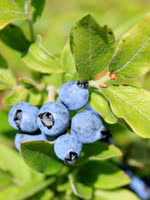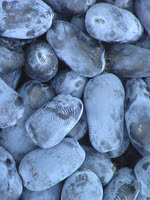Mon-Fri 9am - 5pm Mountain time
Common Blueberry vs Indigo Treat Haskap (Honeyberry)
Vaccinium myrtilloides
Lonicera caerulea Indigo Treat
NOT AVAILABLE THIS SEASON - MIGHT RETURN
NOT AVAILABLE THIS SEASON - MIGHT RETURN
Common Blueberry is an August maturing berry that is wonderfully flavorful and contain more antioxidants by volume than the highbush varieties.
They'll give your baked goods a wonderful pop of flavor.
It isn't as large, pretty, or high yielding as the other varieties we carry. But Common Blueberry is one of the only blueberries that will survive in plant hardiness zones 1A to 2B.
Note: Blueberries require very specific soil conditions. They need well-drained soil with a pH between 4.5 and 5.0.
Indigo Treat has fruit similar in size and firmness to their Tundra variety, making it suitable for commercial production or your home garden.
Indigo Treat, like the Borealis Haskap, does not self-pollinate well. We recommend another variety, such as Honeybee or Berry Blue Honeyberry, be planted at a minimum 1:8 ratio with it to boost fruit production. Many experts suggest the highest Haskap yield comes from fields planted with the most varieties.
Due to stronger interest in newer cultivars, 2015 will be our last year selling Indigo Treat.

